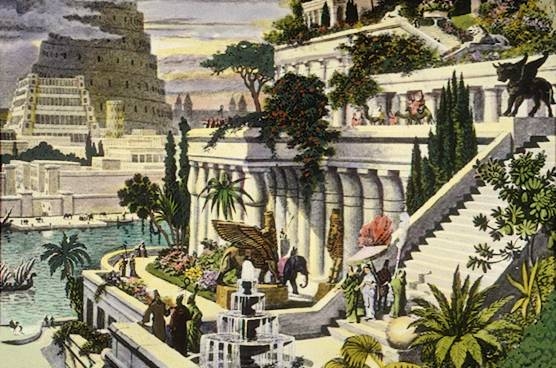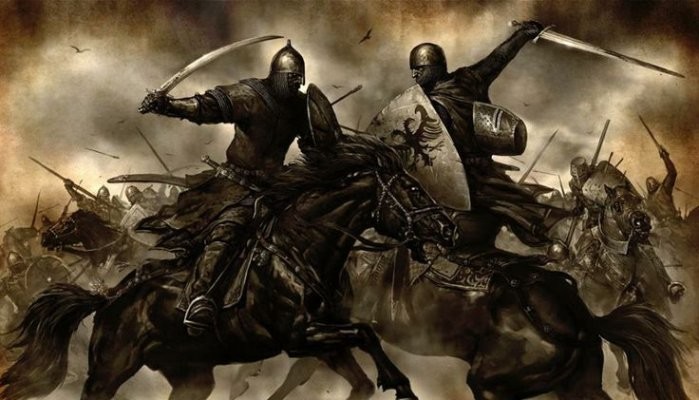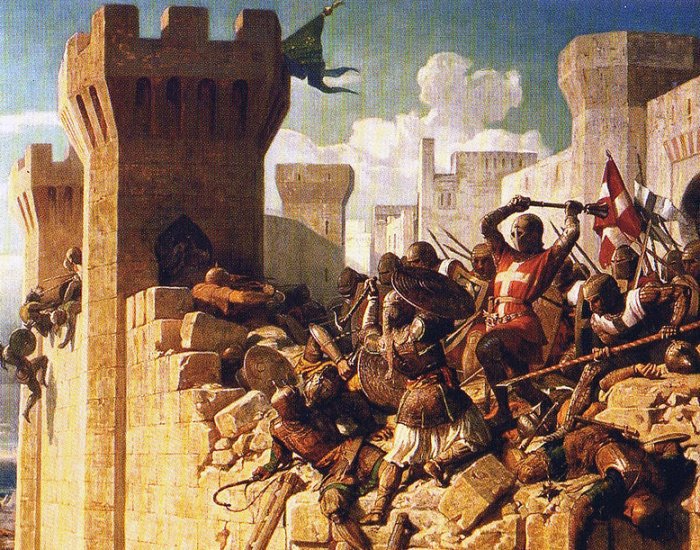AlteredForms
Banned
From the unanimous approval and acclaim from the Roman Empire thread emerges a challenger from the depths of Hades. I'm an individual whose always been fascinated and intrigued with ancient history, with it being a passion spanning from childhood to present-day. There are countless warm memories in my mind of flicking through elementary books, accompanied by colourful illustrations and descriptions of times long past. From the emergence of the primitive 'Stone Age' to the more advanced 'Metal Ages' of copper, bronze and mighty iron. To the birth of ancient civilizations in Mesopotamia, Egypt, Greece and Rome, to the ravenous Middle Ages and the height of the Industrial Revolution preceding our current geographical circumstances.
The primeval and mundane was equally appealing as the familiar and understandable. How our ancestors lacked the expertise and technical know-how that we do, but were still able to make valuable contributions in their own era. How they crafted tools from natural materials for the purposes of cooking, digging and construction, how they hunted animals and clothed themselves in furry hides, learned to communicate and renounce their nomadic ways to build settlements, livestock domestication and trade with neighbouring communities. As our populations grew and settlements turned into city-states, as did the ambitions of a select few who conquered and established monarchies and governments, educational and financial systems, not to mention religious and military orders.
Armed combat laid the foundations of vast empires involving unforgettable engagements, tactics and strategies, alongside noteworthy commanders and tremendous bloody victories! The status quo only expanded and developed as time went on, with emerging aspects and theories being added with pre-existing ones either refined or removed to make space, and such is the circle of life. My intention with this thread is to focus on particular moments in history and allow the individual to impart their own passions and intrigues on the time period selected.
RULE: YOU CAN ONLY SELECT TWO MOMENTS IN HISTORY!!
Mine:
Second Moment - Mesopotamia (5500BC - 539BC)


Iraq. Mesopotamia. Thousands of years before the Greeks and Romans the West have such a hard-on for, there were the Sumerians, the Akkadians, the Babylonians, harnessing the power of the necessity to usher innovations that would change the world forever. Iraq is situated within a geographical region called "The Fertile Crescent" where land and weather conditions, alongside the Tigris and Euphrates rivers provide ample opportunity to plant the world's first cereal crops (oats, barley and wheat) as well as engage in fishing and livestock cultivation. With these innovations emerged city-states (Uruk, Babylon, Ur & Nineveh being the most popular) that were ultimately conquered and unified under Sargon of Akkad, the first person attributed to have ruled over an empire. Opulent and stunning palace complexes were constructed for the upper class, alongside enormous ziggurats to worship and sacrifice to the Mesopotamian deities.
The Sumerians are supposedly the inventors of the wheel, which allowed them to utilize the concept on their carts for the purposes of transport and trade with the Indus Valley Civilization of modern-day Pakistan. Contributions towards the fields of mathematics, astronomy and democracy are also noteworthy. 'Hammurabi's Law' was amongst the earliest texts to comprise a standard judicial system, with the notable phrase "An Eye For An Eye" becoming synonymous with retribution. The original Greek scholar Thales of Miletus was influenced by Babylonian and Egyptian mathematics and astronomy, which trickled down during the ages of the Greek sages. Medicine, music and entertainment were also prized areas of Mesopotamian society, with 'The Royal Game of Ur' and 'Lyres of Ur' being amongst the oldest board games and stringed instruments in their respective categories.
But the most important thing to come out of Mesopotamia was writing, namely in the form of the cuneiform language. Triangular shapes were stamped into wet clay tablets for the purposes of transaction and record keeping, but this ultimately gave way to the earliest recorded novel 'The Epic of Gilgamesh' in 2100BC. Essentially it tells the story of the titular Gilgamesh of Uruk who ultimately sets out on adventure in search of immortality after the death of his friend Enkidu. He fails all the trials and tribulations placed in front of him and eventually returns to Uruk with the realization that no man can outrun his mortality and what it means to use your time effectively. Thanks to this development we're able to learn and read about the people who lived thousands of years ago and it's importance in the history of knowledge can never be understated.
First Moment - The Crusades (1095AD - 1291AD)


Between 1095-1291AD The Holy Land was where Muslims and Christians clashed for the purposes of religious fanaticism, greed and territory. Military campaigns that would last nearly two centuries and the scene to gruelling marches across hostile territory, bloody battles and massacres of thousands of troops and civilians alike, cunning commanders and even craftier men of cloth, all in the hopes of claiming the ultimate prize, Jerusalem. The Crusades are seen through multiple perspectives with opinions changing upon faith and geographical location. Some see them as campaigns of conquest and adventure, whereas others of foreign invaders filled with lust and greed. Reality however is much more complex. Whilst it's the true the recently converted Muslim Seljuk Empire was encroaching upon Byzantine territory, the catalyst however was the landscape of medieval Europe. The Roman Catholic Church was in a challenging position as the church had split between the Catholics to the west and the Greek Orthodox church to eastern Europe (Byzantine Empire). When word reached Pope Urban II of Byzantine Emperor Alexios Komnenos being in trouble with the Seljuk Empire, the papacy chose to act and attempted to solve multiple problems with a single stone.
Urban II hoped to:
 PlayofSparta
eat dezz nutzz!!
PlayofSparta
eat dezz nutzz!!
The primeval and mundane was equally appealing as the familiar and understandable. How our ancestors lacked the expertise and technical know-how that we do, but were still able to make valuable contributions in their own era. How they crafted tools from natural materials for the purposes of cooking, digging and construction, how they hunted animals and clothed themselves in furry hides, learned to communicate and renounce their nomadic ways to build settlements, livestock domestication and trade with neighbouring communities. As our populations grew and settlements turned into city-states, as did the ambitions of a select few who conquered and established monarchies and governments, educational and financial systems, not to mention religious and military orders.
Armed combat laid the foundations of vast empires involving unforgettable engagements, tactics and strategies, alongside noteworthy commanders and tremendous bloody victories! The status quo only expanded and developed as time went on, with emerging aspects and theories being added with pre-existing ones either refined or removed to make space, and such is the circle of life. My intention with this thread is to focus on particular moments in history and allow the individual to impart their own passions and intrigues on the time period selected.
RULE: YOU CAN ONLY SELECT TWO MOMENTS IN HISTORY!!
Mine:
Second Moment - Mesopotamia (5500BC - 539BC)


Iraq. Mesopotamia. Thousands of years before the Greeks and Romans the West have such a hard-on for, there were the Sumerians, the Akkadians, the Babylonians, harnessing the power of the necessity to usher innovations that would change the world forever. Iraq is situated within a geographical region called "The Fertile Crescent" where land and weather conditions, alongside the Tigris and Euphrates rivers provide ample opportunity to plant the world's first cereal crops (oats, barley and wheat) as well as engage in fishing and livestock cultivation. With these innovations emerged city-states (Uruk, Babylon, Ur & Nineveh being the most popular) that were ultimately conquered and unified under Sargon of Akkad, the first person attributed to have ruled over an empire. Opulent and stunning palace complexes were constructed for the upper class, alongside enormous ziggurats to worship and sacrifice to the Mesopotamian deities.
The Sumerians are supposedly the inventors of the wheel, which allowed them to utilize the concept on their carts for the purposes of transport and trade with the Indus Valley Civilization of modern-day Pakistan. Contributions towards the fields of mathematics, astronomy and democracy are also noteworthy. 'Hammurabi's Law' was amongst the earliest texts to comprise a standard judicial system, with the notable phrase "An Eye For An Eye" becoming synonymous with retribution. The original Greek scholar Thales of Miletus was influenced by Babylonian and Egyptian mathematics and astronomy, which trickled down during the ages of the Greek sages. Medicine, music and entertainment were also prized areas of Mesopotamian society, with 'The Royal Game of Ur' and 'Lyres of Ur' being amongst the oldest board games and stringed instruments in their respective categories.
But the most important thing to come out of Mesopotamia was writing, namely in the form of the cuneiform language. Triangular shapes were stamped into wet clay tablets for the purposes of transaction and record keeping, but this ultimately gave way to the earliest recorded novel 'The Epic of Gilgamesh' in 2100BC. Essentially it tells the story of the titular Gilgamesh of Uruk who ultimately sets out on adventure in search of immortality after the death of his friend Enkidu. He fails all the trials and tribulations placed in front of him and eventually returns to Uruk with the realization that no man can outrun his mortality and what it means to use your time effectively. Thanks to this development we're able to learn and read about the people who lived thousands of years ago and it's importance in the history of knowledge can never be understated.
First Moment - The Crusades (1095AD - 1291AD)


Between 1095-1291AD The Holy Land was where Muslims and Christians clashed for the purposes of religious fanaticism, greed and territory. Military campaigns that would last nearly two centuries and the scene to gruelling marches across hostile territory, bloody battles and massacres of thousands of troops and civilians alike, cunning commanders and even craftier men of cloth, all in the hopes of claiming the ultimate prize, Jerusalem. The Crusades are seen through multiple perspectives with opinions changing upon faith and geographical location. Some see them as campaigns of conquest and adventure, whereas others of foreign invaders filled with lust and greed. Reality however is much more complex. Whilst it's the true the recently converted Muslim Seljuk Empire was encroaching upon Byzantine territory, the catalyst however was the landscape of medieval Europe. The Roman Catholic Church was in a challenging position as the church had split between the Catholics to the west and the Greek Orthodox church to eastern Europe (Byzantine Empire). When word reached Pope Urban II of Byzantine Emperor Alexios Komnenos being in trouble with the Seljuk Empire, the papacy chose to act and attempted to solve multiple problems with a single stone.
Urban II hoped to:
- Remove the Seljuk Empire from Anatolia (Turkey) and thus repair Greek Orthodox relations.
- Reclaim Jerusalem from the hands of the Saracens and place it back within Christendom.
- Stop Christians from killing one another in feudal Europe and turn them on the Muslims.
- Strengthen the position of the papacy through remission of sin (Europe was VERY sinful).
- Collect booty and conquer lands in the Levant for the purposes of building tax fiefdoms.
